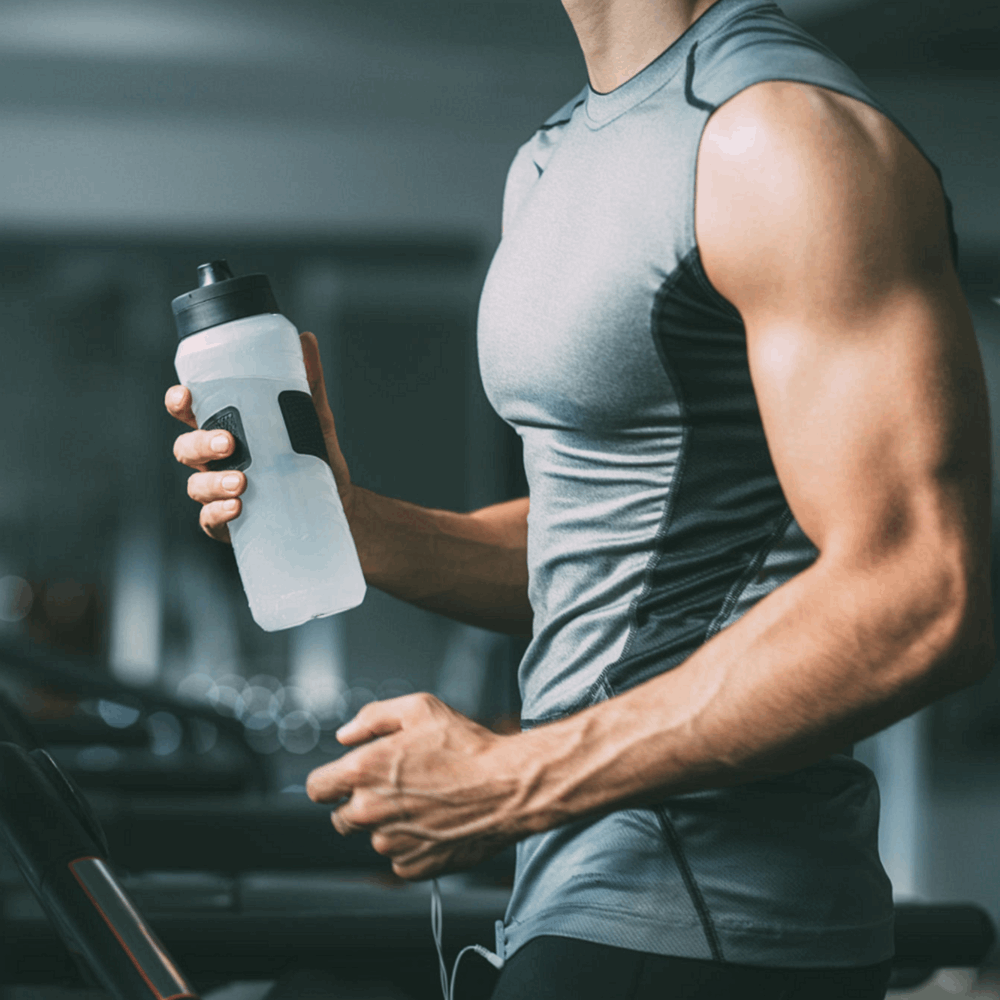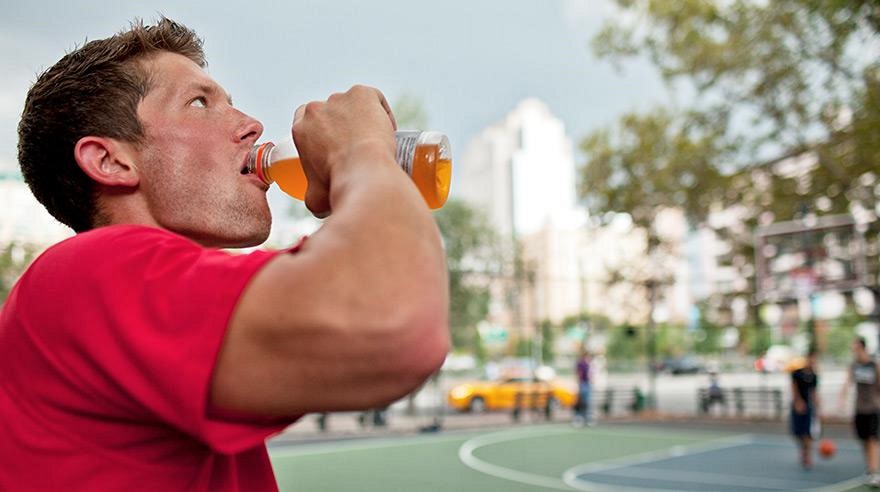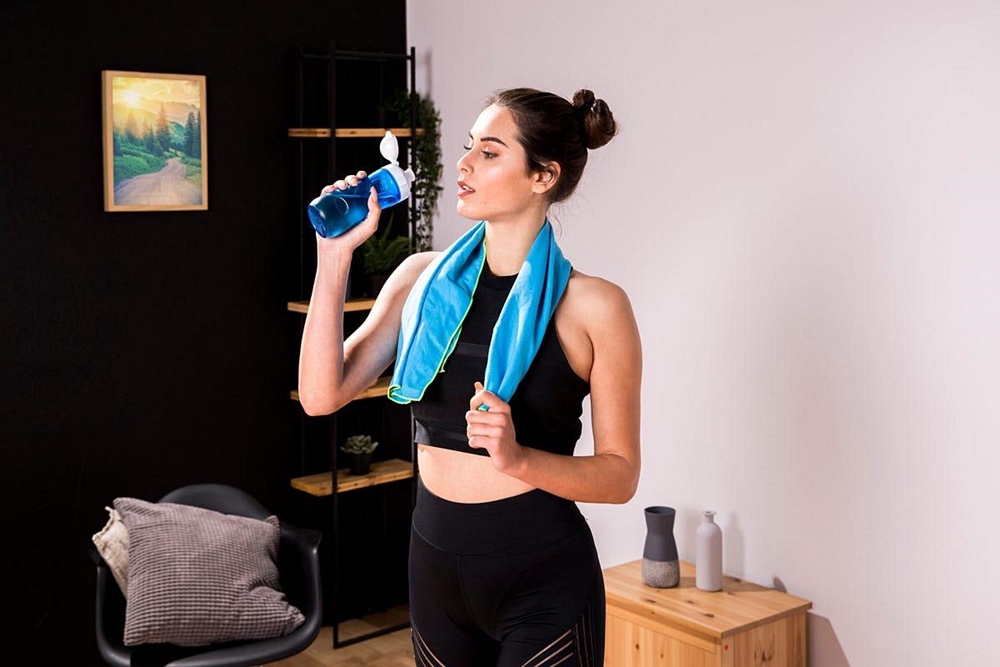Last Updated on: 18th December 2024, 12:30 pm
Water is essential for the human body, especially during exercise. Physical activity increases water loss through sweat, requiring more hydration to maintain balance and performance.
- During exercise, muscles generate heat, causing the body to sweat to cool down, which depletes water reserves.
- Intense workouts increase hydration needs. Drinking water helps maintain body function and exercise capacity.
Understanding the relationship between hydration and exercise is crucial for achieving fitness goals and maintaining health.
Understanding Dehydration

The Science of Dehydration: What Happens to Your Body
Dehydration occurs when fluid loss exceeds intake, disrupting cellular and organ functions. Exercise increases sweat and fluid loss, making regular water intake crucial to maintain body temperature and performance.
Recognizing the Signs and Symptoms of Dehydration
- Thirst is a late sign of dehydration.
- Watch for fatigue, dizziness, dry mouth, and reduced urination.
- These symptoms indicate low fluid levels.
- Ignoring them can lead to severe issues like heatstroke, especially during intense or hot workouts.
The Impact of Dehydration on Exercise Performance and Health
Dehydration reduces endurance, strength, and reaction times. It increases heart workload, body temperature, and slows recovery. Chronic dehydration can lead to kidney issues and cardiovascular problems. Staying hydrated is essential for performance and health.
Hydration is crucial in exercise routines. Understanding dehydration, recognizing its signs, and knowing its impact helps optimize workouts and protect health. Every sip contributes to a healthier you.
The Benefits of Staying Hydrated During Exercise

Hydration is key to peak performance and recovery. It enhances endurance and efficiency, regulates body temperature, and prevents overheating during intense sessions.
- Hydration prevents cramps and injuries. Muscles and joints need fluids for flexibility and resilience.
- A hydrated body is less prone to aches and pains.
- Hydration aids recovery by flushing out toxins, reducing soreness, and preparing for the next session.
Think of your body as a high-performance vehicle needing the right fuel. Hydration is essential for maintaining performance and preventing breakdowns. Make it a part of your workout routine for better results.
Hydration Strategies for Athletes

Guidelines for Pre-Exercise Hydration
Start workouts well-hydrated. Drink 17-20 ounces of water 2-3 hours before exercise, and 8 ounces 20-30 minutes prior. This helps prevent early dehydration.
Hydration Needs During Exercise: Factors Affecting Water Intake
Hydration needs increase during workouts. Factors like exercise intensity, temperature, humidity, and sweat rate affect intake. Sip 7-10 ounces of water every 10-20 minutes, adjusting based on conditions and personal needs.
Post-Exercise Hydration: Replenishing Fluids and Electrolytes
Recovery starts with rehydration. Drink 16-24 ounces of water for every pound lost during exercise. Include electrolyte drinks to restore mineral balance and prevent cramps. Continue hydrating after workouts to fully replenish.
Hydration is about balance. It supports peak performance, efficient recovery, and preparation for future challenges. Use these strategies to ensure your body has the resources to excel.
Choosing Your Hydration: Water vs. Sports Drinks

Water is essential for hydration during exercise, replenishing fluids lost through sweat. However, sports drinks can be beneficial for long or intense workouts.
Sports drinks provide electrolytes like sodium and potassium, and carbohydrates for energy, helping maintain stamina and prevent imbalances.
Be cautious of high sugar and calorie content in sports drinks. They are most effective for prolonged, vigorous activity, while water suits most exercise routines.
Other options include coconut water for natural electrolytes and infused waters for flavor without added sugars. Choose based on workout intensity and health goals.
The choice between water and sports drinks depends on exercise duration, intensity, and personal health. Water is generally sufficient, but sports drinks can benefit endurance athletes. Listen to your body to optimize performance and health.
Practical Tips for Staying Hydrated

Developing a Personalized Hydration Plan
- Assess your daily water intake and adjust based on activity, climate, and body size.
- Create a hydration plan tailored to your exercise routine.
Tools and Technologies for Tracking Hydration
- Smart water bottles track intake and remind you to drink.
- Hydration apps log daily water consumption to meet goals.
Overcoming Barriers to Adequate Hydration During Exercise
- Carry a water bottle for convenience during workouts.
- Enhance water flavor with natural options like cucumber or lemon.
- Set reminders on your phone or watch to drink.
- Keep water within reach to encourage frequent sips.
- Listen to your body’s cues for hydration needs.
Implement these tips to enhance your exercise experience through proper hydration. Your body performs best when hydrated, so make every drop count.
Bringing It All Together
Hydration is key to peak performance and health during exercise. By balancing water intake with body needs, we enhance physical capabilities and protect health. This guide highlights hydration strategies, from recognizing dehydration signs to choosing the right fluids, offering a roadmap to optimal performance and recovery. Commit to making hydration a vital part of your fitness journey for a healthier future.

